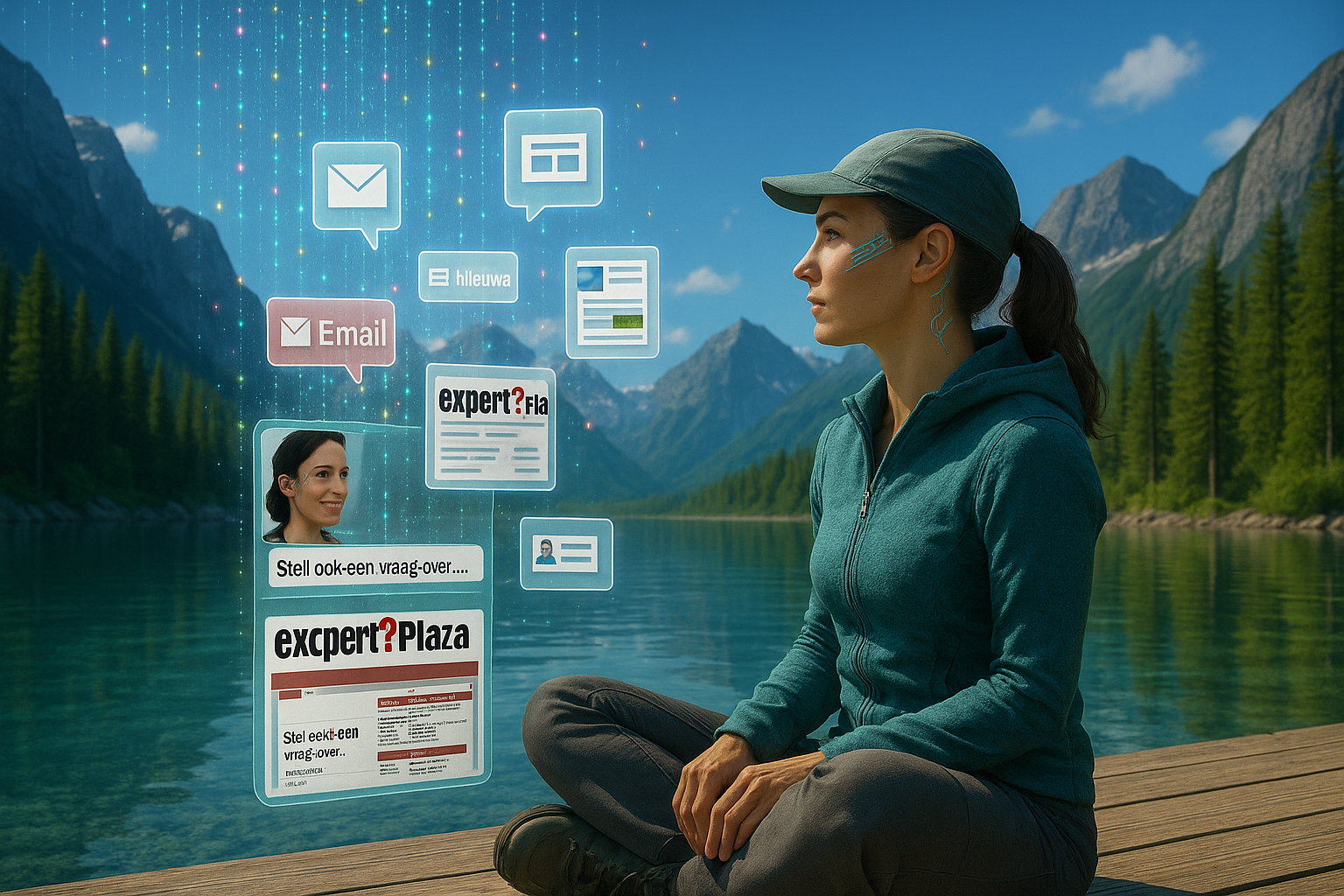Tomorrow's Web

Some time ago, I worked for a startup that wanted to create an EU version of a successful US website. We used the latest available technology and a cutting-edge design. Actually, it was 25 years ago already.
ExpertPlaza was to be a platform where you could register as an expert in the field of you hobby or profession. Others could then mail or call you with a question on that matter. A similar platform was a success in the US, so our version seemed a surefire hit beforehand. And then the dot-com bubble burst.
(By the way, the tech really was latest-greatest: J2EE, fresh out of the box; EJBs, the start of a long love/hate relation; and no web frameworks yet so we created our own templating system for web pages. We used Altavista to google stuff and a modem to deploy. Oh, to be young again!)
There’s still a version of the site kept somewhere on the internet with some round-corner graphics (no border-radius!) appropriately missing, making it look like the battered old site it is.
But really, apart from the fancy frameworks and modern standards that we have nowadays, that site then used the exact same underlying web technology we’re still relying on today. In essence, we’re still making HTTP requests and getting HTML back. “Never change a good thing” someone once taught me, but we can always try to improve, right?
For instance, our microservices are event-driven (or they should be). What would an event-driven world-wide web look like?
I don’t mean websockets or server-side events, but an entirely reversed architecture. Not just a technical change; it would transform how we experience the web. Content wouldn’t just sit there waiting to be discovered—it would find its way to the people who care about it. Information would flow more like a conversation and less like a library. Your browser wouldn’t just be a viewer but a participant. It would subscribe to events from sites you care about. “Notify me when this changes.” “Tell me when someone responds.” “Alert me when this threshold is reached.”
I can picture it already. A web that mirrors how we naturally interact with the world and each other. And in the real world, we don’t constantly ask “Has anything changed?” We simply notice when it does.
Then again, I’m already inundated with popups and notifications as it is. Would an event-driven web make it worse, or finally give us some tools to better filter the noise? Maybe tomorrow’s web will still be serving HTML over HTTP in another 25 years, but I’m counting on the dreamers among us to come up with something new for once.